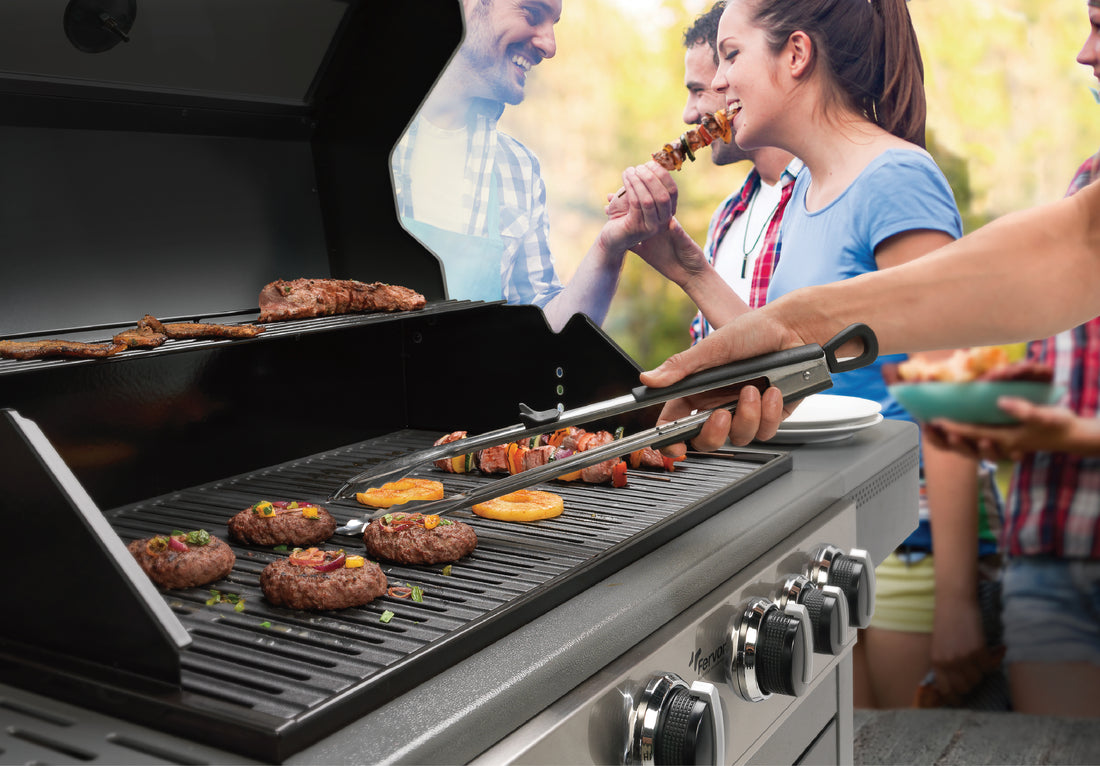
7 Tips For Cooking On A Fervor Ranger Gas BBQ
Share

Cooking and grilling are more art than science. Everyone has its own rules, skills, and style to make themselves a great griller. But there are some basic rules to enjoy your BBQ as long as possible and we will tell you which ones they are. In this blog we assume a gas BBQ as BBQ!

-
Clean your grill every time after use. Unfortunately, no grill is non-stick, so it is normal that your grill contains food scraps after use. It is therefore very important to clean your grill since it will reduce chances of flare-ups and incessant smoke that can cause bad flavour or burns to the outside of your food. Use one of our easy-in-use grill scrappers or bristle cleaning brushes. The best moment to clean your grill is when it is still warm (not hot)!

-
Control the flames. The flames we are looking at are so-called flare-ups. They are the result of food scraps or fat dripping between the grids. These should not be fought but managed by easily moving the food to a flare-up free area on the grill. This means that you should always leave a part of your grill empty so these flare-ups can be controlled. If this does not help, remove all the food from the grill and wait for the fire to set down. So, make sure to always have a spatula or tong on hand!
-
Always keep an eye on your grill. The best and highest chance for your food to be burned is when you turn your back at your grill. Do all your preps before the food hits the grill and at all times watch your grill. There is nothing more sinful than burnt food.
-
Check the level of fuel. Do you ever start a road trip without checking the fuel level of your car before leaving? Nope, we neither. Its no different with gas barbecuing. How stupid would it be to have no gas left while grilling? Therefore, always check if you have plenty of fuel left in the tank. Or make sure to always keep a spare one, just in case. Better safe than left hungry sorry! And whilst checking the fuel level, also quickly check if you gas hose is still proper to use. If not, you can easily order one in our shop.

-
Right temperature and use of tools. Ever heard of food safety? This includes using different (cutting) plates for bringing raw meat, fish and vegetables to the grill and serving cooked meat and fish. You do not want to lay your grilled chicken on the same platter as the one you brought your raw chicken to the grill, because it is already contaminated. Food safety is not only about preventing cross-contamination but also about preventing food poisoning. Therefore, we recommend using a meat thermometer to test the right cooking temperatures. And always keep your cooking are clean and sanitized.
-
Indirect grilling or slow cooking. The oldest method of grilling is direct grilling. But thanks to the different grill levels on our gas BBQs, you can indirectly grill your food as well. Indirect grilling is basically the same as slow cooking. Where burgers and thin slices of meat are perfect for high heat direct grilling, larger chunks of meat, delicate fish and vegetables are at their tastiest when completely tender. This can be successfully met by indirect grilling, so placing the product not on direct heat but for example on the higher grill rack or on the place on the grill with low or no direct flames.
- Maintaining your iron beast. To extend the lifetime of your BBQ it is wise to perform regular maintenance on your grill. Always read the instructions before use, use the correct cleaning tools, and check the internal parts of your BBQ occasionally. This also includes checking the burners and flame holes, the igniters, and the gas hose on abnormalities.

1 comment
Are you trying to show us that we could prolong the lifespan of our grill by maintaining it frequently? Okay, I’m so gonna tell my uncle about this when he hires a repairer sometime soon. The barbecue grill in his backyard needs to be fixed before he uses it this weekend. https://kevinsfireplaceandpatio.com/barbeque